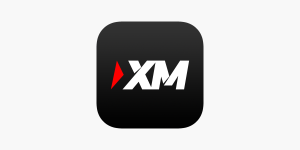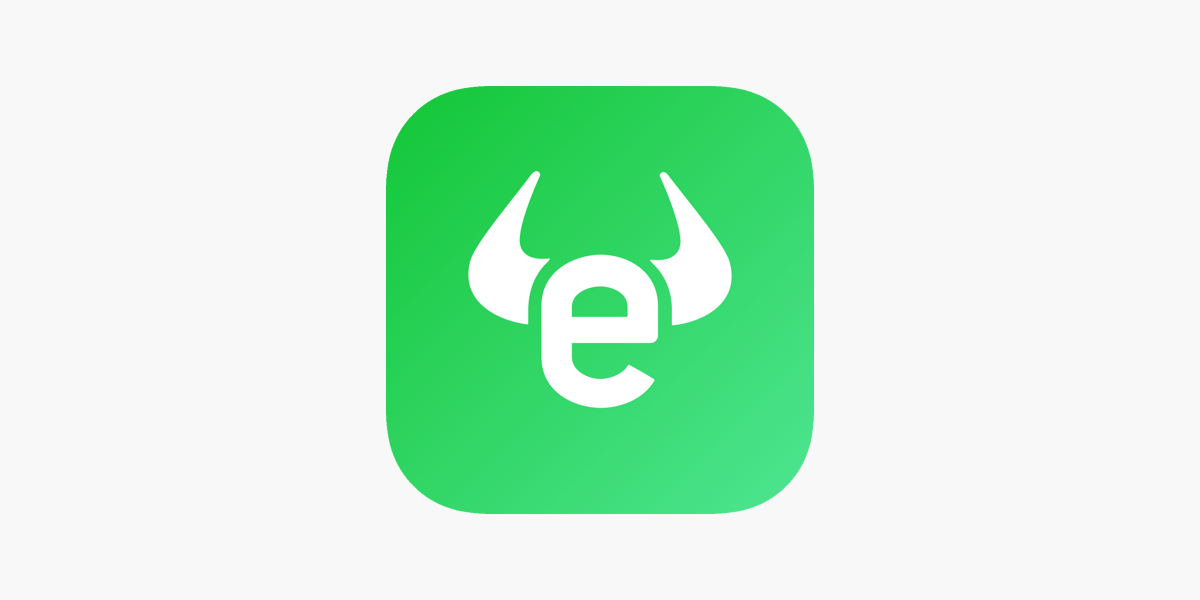
XM

eToro

Fidelity

Webull
Contract for difference (CFD) trading has become increasingly popular among investors seeking exposure to various financial markets without owning the underlying asset. These derivative products allow traders to speculate on the rising or falling prices of fast-moving global financial markets, including stocks, indices, commodities, and currencies. With the advent of mobile technology, CFD trading apps provide the convenience of trading from anywhere, at any time, giving traders more control over their investment strategy and the ability to react swiftly to market changes.
Selecting the best CFD trading app requires considering factors such as user interface, available assets, commission fees, and the quality of customer support. Investors also prioritize the stability and security of the app as it handles sensitive financial data and transactions. The market offers a range of apps catering to different investor needs, from those suited for beginners to apps designed for the more experienced traders with robust analytical tools. Among the top-rated apps, eToro and Interactive Brokers have been recognized for their comprehensive offerings and user-friendly experiences.
These apps not only provide accessibility but also include educational resources to inform trading decisions. From real-time data, charting tools, and customizable alerts, traders can stay informed and make decisions with confidence. As the financial landscape continues to evolve, the importance of reliable and efficient CFD trading apps will only grow, making the choice of the right app an essential step in a trader’s journey.
Understanding CFD Trading
CFD trading offers both opportunities and risks, making it a compelling method for traders who understand the market’s intricacies. It revolves around the accurate speculation of price movements of various assets.
What Is CFD Trading?
CFD trading, or Contracts for Difference trading, involves the exchange of the difference in the value of a particular asset from the time a contract is opened until the time it is closed. Essentially, it allows traders to speculate on the rising or falling prices of fast-moving global financial markets.
How CFDs Work
When engaging in CFD trading, you do not own the actual underlying asset—instead, you trade on the expectation of an asset’s price movement. Leverage plays a crucial role, as it allows traders to open positions with just a fraction of the trade’s value—referred to as margin. If the market moves in your favor, profits are magnified; conversely, so are losses.
Benefits and Risks of CFD Trading
Advantages of CFD trading include access to a wide range of markets, the ability to go long or short with equal ease, and the leveraged trading potential, which can lead to significant returns. However, with high leverage comes high risk—particularly the amplification of losing money. It’s important to note that a majority of retail investor accounts lose money when trading CFDs. CFD traders must cautiously manage their risk and thoroughly understand CFD instruments and markets.
Choosing a CFD Trading Platform
When selecting a CFD trading platform, it is essential to consider features that align with your trading strategy, understand the cost implications, and ensure the platform is regulated and secure.
Key Features to Look For
The best CFD trading platforms prioritize a suite of robust trading tools and features. Traders should look for platforms offering comprehensive technical analysis capabilities through advanced indicators and charting tools. A user-friendly interface on both desktop platform and mobile app is critical for analysis and trading on the go. Reliability is another crucial factor, as downtime can be costly in fast-moving markets.
Assessing Brokerage Fees and Commissions
Fees and commissions can significantly impact profitability. Traders must scrutinize the fee structure, looking for low fees and reasonable commission rates. It’s important to check for additional charges, such as an inactivity fee, which can erode returns over time. Best CFD brokers often balance between competitive pricing and offering high-value services.
Regulation and Security
A trustworthy CFD trading platform is typically overseen by reputable regulatory bodies like the Financial Conduct Authority (FCA) or CySEC. Regulation ensures that brokers adhere to strict standards of operation, offering traders a layer of protection. Additionally, strong security measures to protect users’ assets and personal information are non-negotiable for any reputable platform.
Diverse Market Access
In today’s financial trading landscape, CFD (Contract for Difference) platforms offer an expansive range of markets, providing traders with the opportunity to engage with a variety of asset classes and global markets through a single application.
Trading Different Asset Classes
CFD trading apps have transformed the accessibility of financial markets, allowing traders to engage with an extensive array of asset classes such as forex, stocks, indices, metals, commodities, and an array of cryptocurrencies, including Bitcoin. Through these apps, accessing the currency pairs and commodities markets becomes as straightforward as trading traditional stocks or bonds. Traders can effortlessly switch between trading gold, silver, and a variety of other popular metals, or speculate on the price movements of oil and agricultural commodities.
Global Markets and CFD Products
CFD apps provide a gateway to global markets, encompassing developed and emerging economies. Participants can trade products from different exchanges around the world without the need to access each market directly. These platforms facilitate trading in a broad range of CFD products encompassing shares, options, futures, ETFs, and more. The integration of financial instruments from various markets into a single platform significantly streamlines the trading process, making it easier for investors to diversify their portfolios and manage their investments across different markets and asset classes.
Beginners Guide to CFD Trading
Contracts for Difference (CFDs) provide traders with the opportunity to speculate on price movements without owning the underlying asset. It’s vital for beginners to select CFD trading platforms that offer comprehensive educational resources and the option to practice with demo accounts.
Educational Resources and Support
When entering the world of CFD trading, it is essential for beginners to have access to educational resources that can help them understand the markets and the instruments in their portfolio. Many reputable platforms provide a range of educational materials, including webinars, detailed guides, and real-time market analysis. Customer support is also crucial, as beginners may require assistance to navigate through different account types and features.
- Webinars: Interactive sessions that cover various aspects of CFD trading.
- Guides: A collection of articles and instructions tailored for different trading experiences.
- Real-time Analysis: Helps in making informed investment decisions.
Demo Accounts and Practice
Practicing with a demo account is indispensable for those new to CFD trading. Demo accounts allow beginners to apply trading strategies in a risk-free environment, acquainting them with the trading platform’s functionalities without the need to invest real money. This hands-on practice helps build confidence before transitioning to a live trading account.
- Risk-free Environment: Test trading strategies without real financial consequences.
- Platform Familiarization: Learn to navigate trade execution and portfolio management tools.
Advanced CFD Trading Strategies
In the realm of advanced CFD trading strategies, experienced traders leverage a combination of rigorous technical analysis techniques and calculated leverage and margin strategies to optimize their trade positions. Mastery of these strategies requires a deep understanding of market indicators and a balanced approach to risk management.
Technical Analysis Techniques
Advanced traders often employ a repertoire of technical analysis techniques to forecast market directions and identify trading opportunities. Key among these techniques is the use of chart patterns and technical indicators. Candlestick patterns, such as head and shoulders or double tops and bottoms, provide insights into market sentiment and potential reversals.
Utilizing indicators like moving averages, RSI (Relative Strength Index), and MACD (Moving Average Convergence Divergence) can also guide traders. Experienced traders may look for convergences or divergences between price and indicator movements to signal potential buy or sell actions.
- Moving Averages: Used to identify trends by smoothing out price action.
- Simple Moving Average (SMA)
- Exponential Moving Average (EMA)
- Oscillators: Help to pinpoint overbought or oversold conditions.
- Relative Strength Index (RSI)
- Stochastic Oscillator
Integrating multiple indicators is a common practice to filter out noise and improve the accuracy of predictions. The application of these technical analysis tools requires a significant level of trading experience to be effective.
Leverage and Margin Strategies
Leverage and margin strategies afford traders the ability to enter larger positions than their capital would otherwise allow. However, these strategies introduce a high risk of amplified losses, making them more suitable for experienced traders.
- Leverage: Using borrowed funds to increase potential returns.
- Can magnify gains
- Amplifies losses, increasing the risk
- Margin: The minimum balance required to maintain an open leveraged position.
- Initial Margin: Required to open a position.
- Maintenance Margin: Needed to keep the position open.
Traders optimize leverage ratios based on their risk tolerance and the volatility of the underlying asset. Futures and options can also be integrated into CFD strategies to hedge exposure or speculate on price movements, often in combination with leverage.
It’s vital for traders to understand the implications of using leverage and to actively manage positions to mitigate potential losses. Employing stop-loss orders and regularly monitoring the margin balance are prudent practices. They engage in these strategies cognizant of the stakes, acknowledging the potential for both significant gains and losses.
Trading Platforms and Software
Choosing the right trading platform is crucial for efficiently managing and executing CFD trades. Investors often weigh the usability and feature set of platforms in addition to their accessibility on various devices.
Desktop vs Mobile Trading
Desktop trading platforms offer a robust and comprehensive trading experience with access to a wide range of features and analytical tools. Traders who prefer a multi-monitor setup with detailed chart analysis might opt for platforms like MetaTrader 4 (MT4) or MetaTrader 5 (MT5), which are known for their advanced technical analysis capabilities. On the other hand, mobile trading apps provide traders the convenience of managing their trades on a mobile device, allowing them to react quickly to market changes no matter where they are. Interactive Brokers is an example of a CFD trading platform that offers both a customizable desktop platform and a user-friendly mobile app.
Popular Trading Platforms
In the realm of CFD trading platforms, several have gained popularity due to their reliability and feature set. IG has emerged as a favored platform for many due to its intuitive interface and range of market access. Meanwhile, TradingView caters to those looking for a platform with social networking features and community-driven analytics. Each platform serves different user preferences, with some prioritizing a wide array of technical indicators and others emphasizing a user-friendly design.
Account Management
Effective account management is central to your trading experience, allowing for better control over your portfolio and smoother transactions. It encompasses understanding the various account types, carrying out deposits and withdrawals efficiently, and having access to robust customer service and support.
Understanding Account Types
When selecting a CFD broker, it’s vital to understand the different account types offered. Typically, brokers provide a range of options from retail trader accounts to professional ones. Retail accounts often come with more protection and risk management tools, which are crucial for those new to CFD trading. Some brokers offer tier-based accounts that cater to different levels of trading experience and investment, affecting leverage, spreads, and other trade-related nuances.
Deposits and Withdrawals
A streamlined process for deposits and withdrawals is a hallmark of a good CFD trading app. Investors should look for platforms offering multiple secure payment methods, clear guidelines on deposit limits, and quick access to funds. Withdrawal procedures should be transparent with known timeframes and any associated fees, helping traders plan their finances effectively.
- Deposits: Typically instant or up to several business days
- Withdrawals: May vary from immediate to several business days, depending on the broker
Customer Service and Support
Customer service and support are paramount in CFD trading, where time-sensitive decisions are the norms. Traders should seek brokers providing multiple channels of support such as live chat, email, and phone lines. The service should be knowledgeable and readily available, ensuring any account management issues can be resolved swiftly.
- Availability: 24/5 or 24/7 depending on the global markets
- Channels: Live chat, Email, Phone, FAQ sections
Social and Copy Trading
In the dynamic realm of CFD trading, social and copy trading have emerged as pivotal features, granting traders the ability to mimic the strategies of seasoned investors. Platforms like eToro have been instrumental in popularizing this trend, offering a robust environment for both beginners and experts.
Copy Trading Platforms
eToro stands out as a leader in copy trading services. Their platform allows users to replicate the trades of successful investors effortlessly. The interface is designed with clarity in mind, ensuring that even traders with modest experience can navigate and utilize the copy trading functions.
- Key attributes of leading copy trading platforms:
- Ease of use: Intuitive interfaces help new traders adopt trading swiftly.
- Asset diversity: A wide range of instruments such as cryptocurrencies, CFDs, and forex is available.
- Transparency: Visibility of track records lets users assess and select top performers.
Community Support and Networks
The backbone of social trading is the community engagement it fosters. Traders benefit from the knowledge shared within these social networks, encapsulated best in the community-centric approach of eToro. Here, community support transcends mere discussion; it is an interactive space where traders observe, learn, and ultimately, mirror trades of those they follow.
- Advantages of a strong trading community:
- Collective Wisdom: Interacting with a diverse set of traders can lead to more informed trading decisions.
- Knowledge Sharing: Novices gain insights from experts through open communication channels.
- Emotional Support: The community offers moral support, helping traders cope with the volatility and stress of trading.
Trading Costs and Considerations
When selecting a CFD trading app, investors must scrutinize trading costs and fees, as they directly impact profitability. It is essential to understand the fee structures, including commissions, spreads, and any inactivity fees that might eat into returns.
Comparing Broker Fees
Brokers may charge a commission on trades, a percentage that can vary depending on the asset traded or may opt for a commission-free model, earning money through spreads instead. For instance, some brokers like Interactive Brokers provide a competitive fee structure that includes both commission charges and low spreads, attracting a wide range of traders.
| Broker | Commission Type | Fee Structure |
|---|---|---|
| Interactive Brokers | Per Share | $0.005 per share |
| eToro | Commission-Free | Earns via spreads |
| IG | Spread & Commission | Variable |
Understanding Spreads
Spreads, the difference between buying and selling price, are implicit fees that brokers may widen to increase their revenue. Unlike commissions, spreads are not a fixed charge but vary with market volatility. For major forex pairs, spreads may be lower, while less liquid instruments could have wider spreads. eToro, for example, is known for offering competitive spreads across a range of asset classes, which makes it a popular choice for traders.
Investors must examine these costs closely as they can differ widely between brokers and impact the overall trading results. Whether a trader prefers lower spreads with higher commissions, or vice versa, hinges on personal trading style and frequency.
Frequently Asked Questions
This section aims to clarify common queries regarding CFD trading apps, spotlighting platforms suitable for beginners, free trading options, and essential features for effective trading.
What are the best CFD trading platforms for beginners?
For beginners, platforms like eToro and IG are recognized for their user-friendly interfaces and educational resources, facilitating a smoother entry into CFD trading.
Which CFD trading apps offer free trading options?
While true ‘free trading’ options are rare due to the costs involved in CFD trading, apps like eToro offer more competitive fee structures and no commission on stock CFDs, which can reduce trading costs.
How can I identify the top CFD brokers worldwide?
The most reputable CFD brokers are often regulated by authoritative bodies such as the FCA or SEC. Websites like DayTrading.com often provide app ratings and regulatory information to help traders identify trustworthy brokers.
Are there any CFD brokers available for US citizens?
CFDs are not permitted for trading by retail investors in the United States; thus, U.S. citizens cannot legally trade CFDs through any broker.
Can trading CFD be considered profitable for traders?
Trading CFDs can be profitable; however, it also carries a high level of risk. Successful traders generally have a deep understanding of the markets and use risk management tools to mitigate potential losses.
What features should I look for in a CFD trading app?
Traders should seek CFD trading apps that offer advanced charting tools, a wide range of markets, competitive spreads, and robust risk management features. Platforms such as XTB and Interactive Brokers are known for these capabilities.
